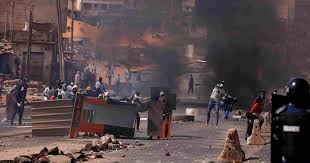
Senegal’s Interior Minister oversaw a major eviction operation on Saturday targeting an irregular settlement in Dakar inhabited by beggars, both foreign and Senegalese nationals.
The operation, conducted on land owned by the SNHLM housing company, was framed as part of a broader campaign against begging and urban disorder.
“The occupation of this space cannot continue,” the Interior Minister said, emphasising that the eviction would be carried out within a legal framework. “Begging is prohibited by law, and it is our duty to put an end to excesses observed in several neighbourhoods of Dakar.”
Authorities highlighted that the occupants were of diverse nationalities, seeking to prevent stigmatization of foreign residents. The Ministry stressed that the initiative is not aimed at any specific community, but at restoring public order and enforcing legal standards regarding urban spaces.
Public reactions have been mixed.
Some Dakar residents expressed scepticism about the feasibility of sustaining long-term reforms, citing previous unsuccessful clearance operations.
Others welcomed the measures, hoping for improved security and a gradual restoration of the city’s public spaces.
The capital has long been criticised for cluttered sidewalks, informal trading, and the presence of talibé children, which residents say contributes to insecurity and diminishes the city’s image.
The operation follows the recent government reshuffle on September 6, 2025, which saw Maître Bamba Cissé assume the role of Minister of the Interior and Public Security. His appointment comes at a time of heightened concern over urban management, public safety, and the regulation of informal settlements in Dakar.
Officials described the eviction as part of a larger urban modernisation strategy, aimed at balancing economic development with respect for public order. Eviction campaigns are expected to continue across other sensitive areas of Dakar in the coming weeks, with the government monitoring compliance and enforcement closely.
The move signals the state’s determination to regulate public spaces while attempting to address the broader socio-economic challenges associated with begging and informal settlements.



